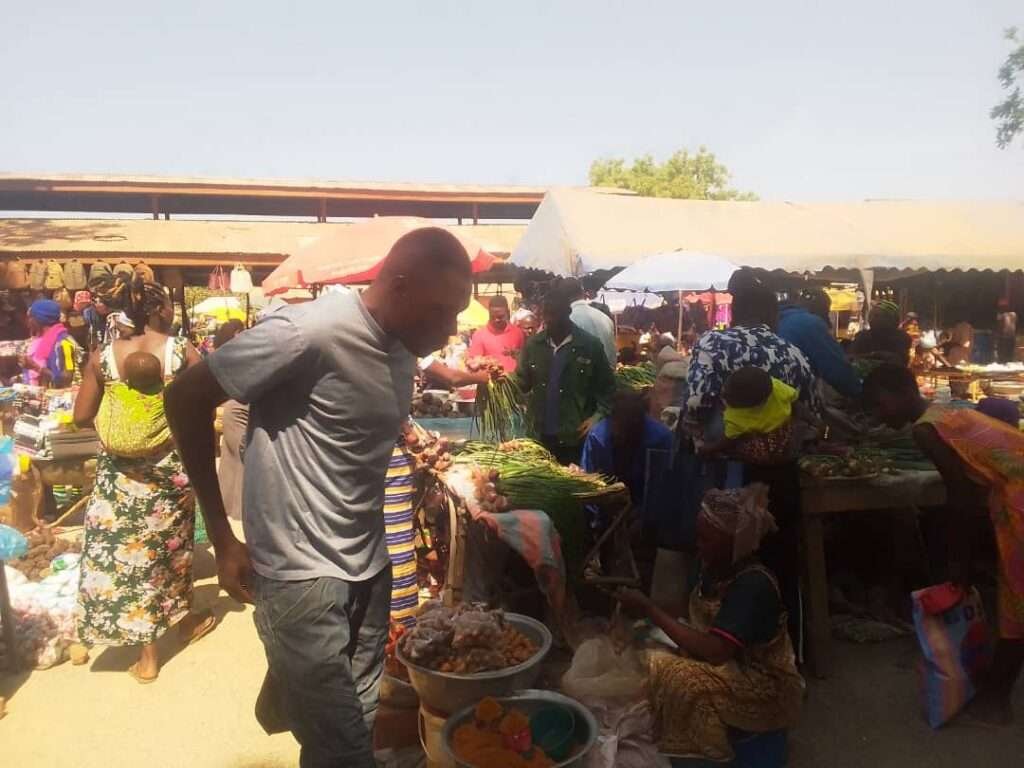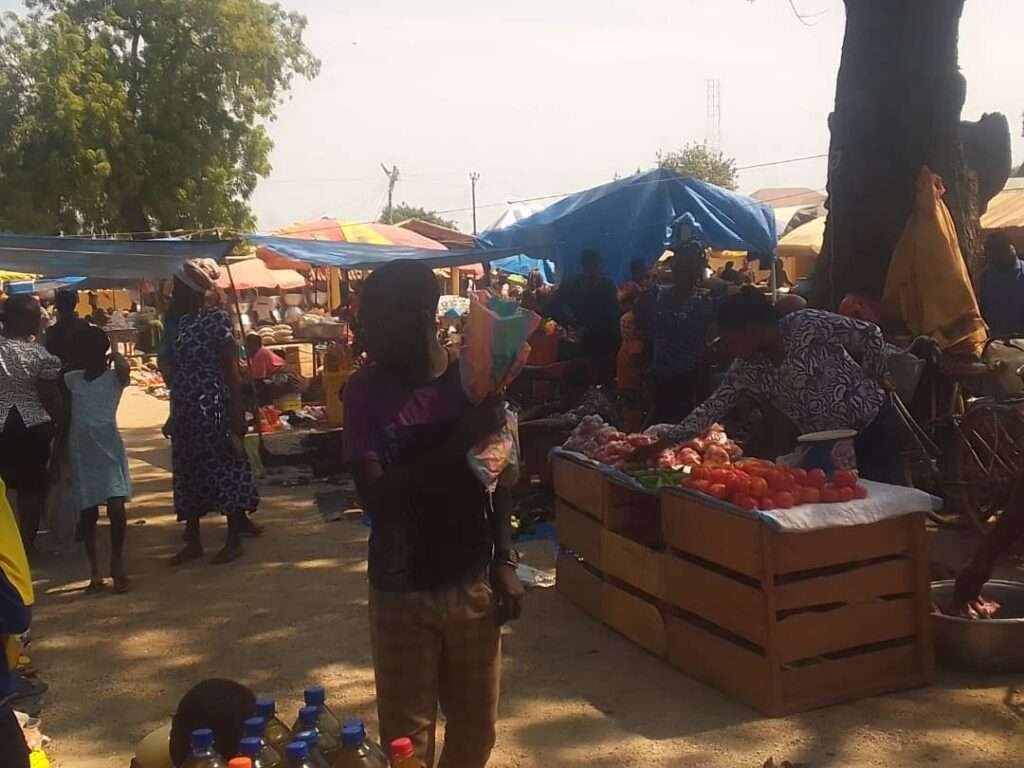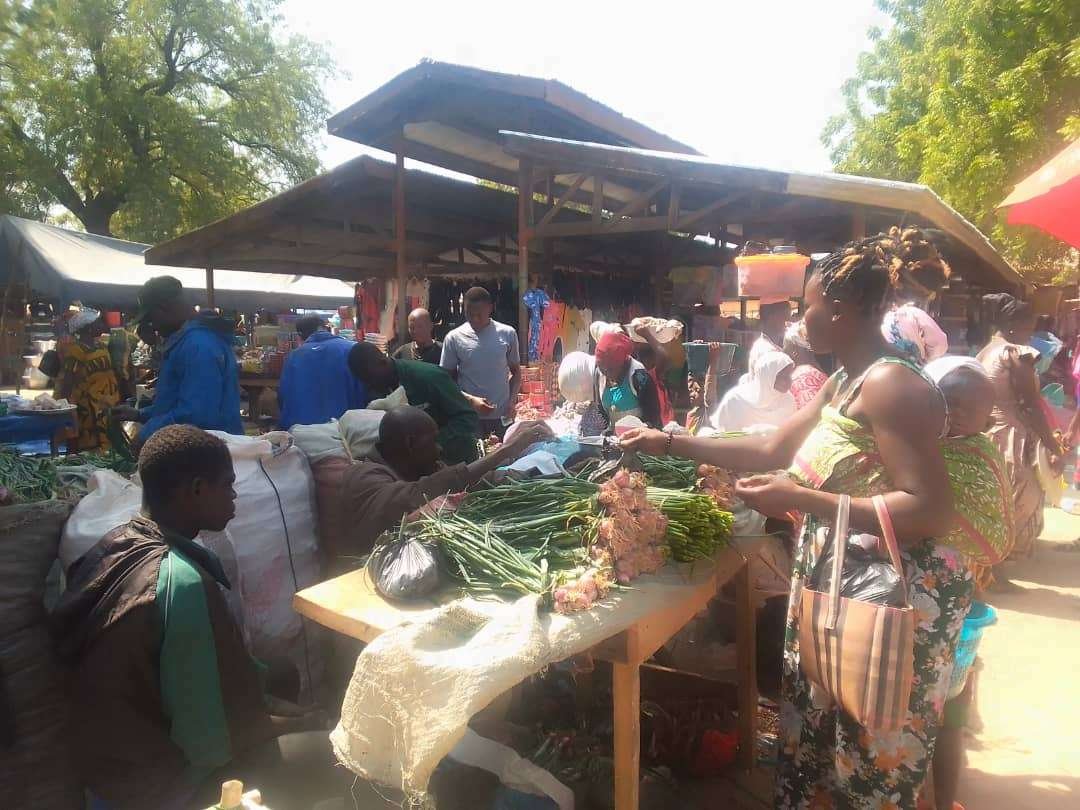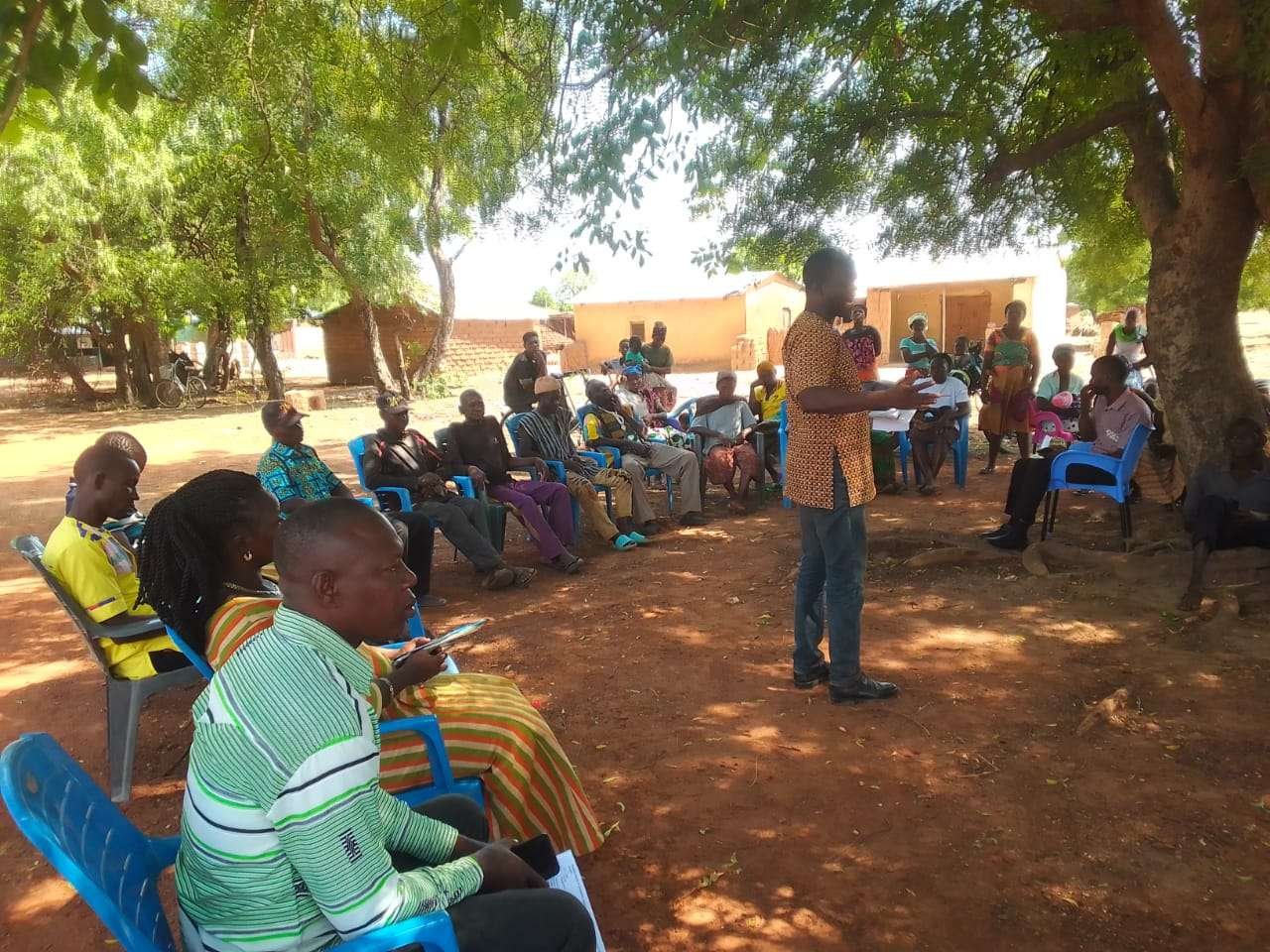The Jirapa main market, located less than two kilometers west of the Jirapa township on the Jirapa-Tizza main road, is not just a bustling commercial center but an integral part of daily life for many people in the region.
Market days fall on Sundays, drawing people from near and far, including neighboring countries. These days are characterized by brisk business transactions, the renewal of weekly social ties, and, to some extent, sightseeing for the curious.
A typical market day begins on Saturday when traders and businesspeople start transporting their goods, particularly the itinerant vendors who travel from town to town based on market schedules to offer their products and services.
Market days in Jirapa are orderly and colorful, filled with laughter, lively haggling, and traders enthusiastically advertising their products. Shoppers exchange pleasantries, and occasional disputes arise between vendors and revenue collectors over collected or uncollected tolls. However, unlike most large markets, Jirapa’s market remains remarkably free of human and vehicular congestion, quarrelsome traders, and rampant pickpocketing.

In contrast, market days in places like Wa, Techiman, and Makola can be overwhelming, leaving shoppers exhausted and relieved if their purchases, handbags, and wallets remain intact after the hustle and bustle.
One striking aspect of the Jirapa market is its security. Despite the absence of visible security personnel, parking arrangements for vehicles, bicycles, tricycles, and motorbikes are neatly organized. Reckless riding is notably absent within the market square, even though Jirapa township is infamous for its dangerous riding culture, which has led to multiple fatalities.
Another remarkable feature is the scarcity of beggars, loiterers, and idlers. Unlike many major markets, which have designated spots for beggars, the Jirapa market remains largely free of them, a commendable achievement by its managers.
The Jirapa market would not be what it is without its vibrant social scene. The local brew, particularly pito, takes center stage in many animated debates. Enthusiasts passionately argue over which brewer is the best, mostly women, known as “daa pog,” though rumours suggest some men are involved in producing the best pito. When disagreements arise, defeated debaters often attribute their loss to the quality of malt used by their favoured brewer or some other unusual factor.
Equally significant is the presence of traditional delicacies such as “kose” (or “sinser,” sometimes referred to as “cakes”). This golden-brown treat, made from finely mixed bean flour and water, is fried in hot oil and enjoyed either alone, with ground dry salt and pepper, or with freshly prepared pepper and tomato sauce.
A special variation of “kose” involves mixing it with boiled and crushed local leaves native to northern Ghana. Some prefer to enhance the dish with shredded tomatoes, onions, and cabbage, creating a filling and delicious meal. Others take it a step further by mushing “kose” with pork, mutton, or beef broth—sometimes adding the same leafy mixture, which results in a mouthwatering dish often washed down with pito, beer, or stout. This communal dining experience with family and friends frequently leads to second servings.

For meat lovers, local butchers skillfully prepare boiled pork or beef seasoned only with salt and pepper. Some go further by using the entrails and blood, boiling them within the intestines to create a much-loved delicacy.
Beyond trade and food, the Jirapa market serves as a hub for social interactions. It is a place where significant matters such as marriages, funerals, and weighty family or business discussions take place. Due to busy work schedules and long distances, relatives, friends, and business partners often use the weekly market day as an opportunity to meet and settle important matters.
A wide range of goods is available, including fresh and dried vegetables, legumes, corn, millet, rice, dawadawa, and livestock. Additionally, local and foreign fabrics, electronic products, plastic ware, and an extensive array of other items can be found.
Services such as hairdressing, tailoring, and dressmaking thrive on market days, catering to the high demand.
Market days in Jirapa also serve as a crucial revenue stream for the Municipal Assembly. Revenue officers are visible, collecting market tolls and levies from traders, vehicles, and motorbikes to support local development projects.
Whenever you find yourself in Jirapa township on a Sunday, be sure to visit the market and immerse yourself in its sights, sounds, aromas, and tastes. It is an experience worth savoring!












This is an awesome writing. Anytime I go to Jirapa, I will visit the Market.
Congratulations to you bro. The whole write-up is a true reflection of Jirapa market. Kudos
Vivid description of the market
I suddenly desired to be there to enjoy my pork. Great